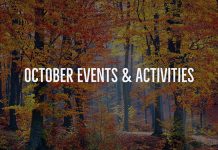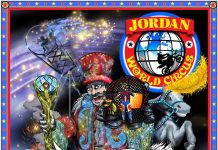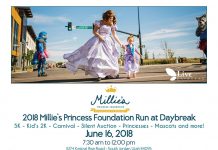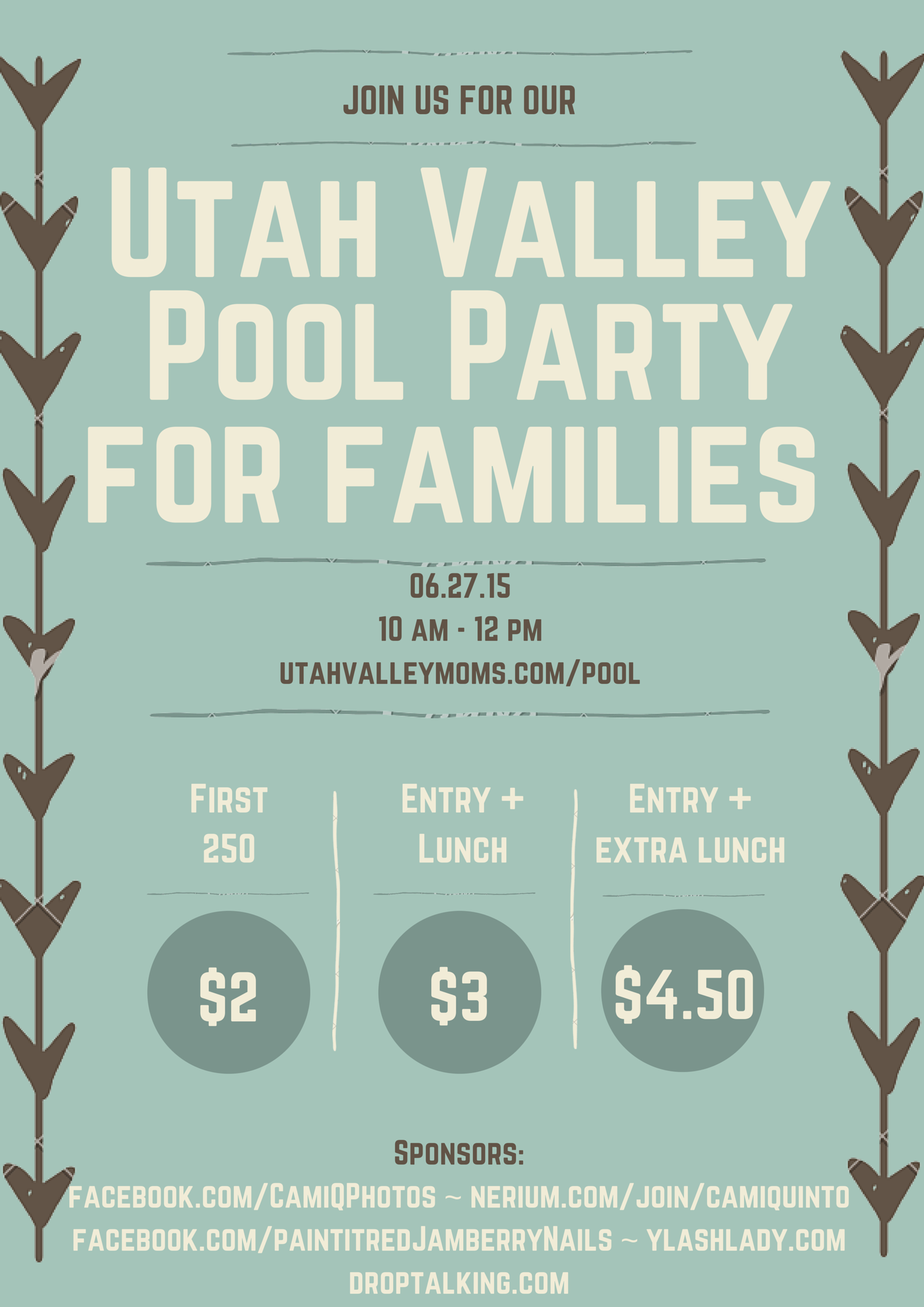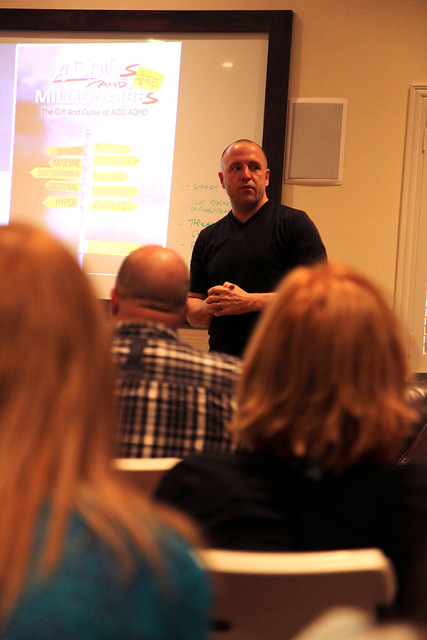
I had the opportunity to listen to Mark Patey speak about the gift and curse of ADD/ADHD.
As a young child, Mark was diagnosed with ADHD and in school, was put in a class with the troublemakers and special needs children. However, at the young age of 15 (or somewhere close to there), he started his own business, was successful, and by the age of 21, he had hundreds of employees.
Mark stressed the difference between what some people say traits are of ADD/ADHD and how he looks at it:
Having a husband who went to have a test taken as to whether he is ADD or not (he is ADD), I thought this was very fascinating. I have always thought of him as somewhat scatterbrained, impulsive, and distracted. But Mark is right. Mike, my husband, can multitask. He can listen to music and program while seeming to think of a handful of things at one time.
The real important thing to recognize about ADD/ADHD, is that it has many blessings and it is not an excuse. Just because a person is ADD/ADHD does not mean that he can not accomplish many things in life. It is not an excuse to not finish a project. In fact, those with ADD/ADHD actually seem to have a better working brain than “normal” people. Out of 50 millionaires that Mark interviewed for his book, 42 of them were self-diagnosed or clinically-diagnosed with ADD or ADHD.
Those with ADHD also tend to have addictions because something stimulates the brain and it just keeps going. For example, Mark, over 18 years ago, had an addiction to video games. Now he runs. My husband likes to have something in his mouth (unfortunately, usually it’s sugar). Because of these addicting behaviors, it’s good for those with ADD/ADHD to have something that has an end. Mark likes watching movies because it helps his brain slow down and helps him reboot.
ADD/ADHD people also tend to like praise and things that are measured in tangible results. I’ve noticed that with Mike. After he completes a task, he likes to tell me about it and I’ve always thought that it’s because he likes the praise and being rewarded, even if it’s something simple like taking a shower for two days in a row. I used to get annoyed. Now after hearing Mark, I get it. He likes the tangible results. He loves watching things download. It has an end and it has a result – something that makes him very happy.
So after reading the shortened version of the basics of people with ADD and ADHD, you may be able to think of someone you know who is always thinking, always multitasking, has high energy, has an addiction, and loves praise … or maybe it’s you. But an important part to having ADD/ADHD or knowing someone who does is for that person to have an “Equal Opposite.” The equal opposite understands the ADD/ADHD person and that person recognizes their equal opposite to be such.
I need to be my husband’s equal opposite. Recognizing that he has ADD and that it controls his brain is important. He has a hard time with time management. It’s something that I’ve always been frustrated about because I like to be on time. But I’m learning how to deal with it. As I mentioned, he’s a software developer and sits at our home computer all day and programs for a living. So when we have an event to go to and need to leave at 5:30 pm, I first put the event on the calendar. Around an hour before we need to leave, I remind him that we are leaving at 5:30 pm. About a half hour before we leave, I might remind him again just to make sure he knows that he will not be able to program all night. And 10-15 minutes before we need to walk out the door, I’ll give him a heads up of the time and that we are leaving at 5:30 pm because guaranteed, he’s already lost track of time and has probably forgotten about the event because his mind is on programming and fixing problems, not being on time for an event. Sometimes we make it out the door at that time and sometimes we don’t. But this works for us. Our time management as a couple has improved with how much we have been able to communicate and understand weaknesses and strengths.
Mark’s main point as he spoke to us was, “Magnify the beautiful things of ADD/ADHD, or all you are left with is the curse.” It’s so important that we work with ADD/ADHD, and not against it. Everyone needs to be understanding and remember that everyone is different. And it’s so important to recognize that someone with ADD/ADHD is not broken. They don’t need to be fixed.
I could go on and on about ADD/ADHD and the realization I’ve had now that I’ve listened to Mark, however, I suggest you learn more for yourself. You could visit ADHD Gift, read his book, follow his podcast, or read his blog.

